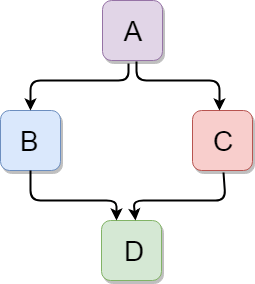Hybrid inheritance is a combination of more than one type of inheritance.

Let’s see a simple example:
#include <iostream>
using namespace std;
class A
{
protected:
int a;
public:
void get_a()
{
std::cout << “Enter the value of ‘a’ : ” << std::endl;
cin>>a;
}
};
class B : public A
{
protected:
int b;
public:
void get_b()
{
std::cout << “Enter the value of ‘b’ : ” << std::endl;
cin>>b;
}
};
class C
{
protected:
int c;
public:
void get_c()
{
std::cout << “Enter the value of c is : ” << std::endl;
cin>>c;
}
};
class D : public B, public C
{
protected:
int d;
public:
void mul()
{
get_a();
get_b();
get_c();
std::cout << “Multiplication of a,b,c is : ” <<a*b*c<< std::endl;
}
};
int main()
{
D d;
d.mul();
return 0;
}
Output:
Enter the value of 'a' : 10 Enter the value of 'b' : 20 Enter the value of c is : 30 Multiplication of a,b,c is : 6000
